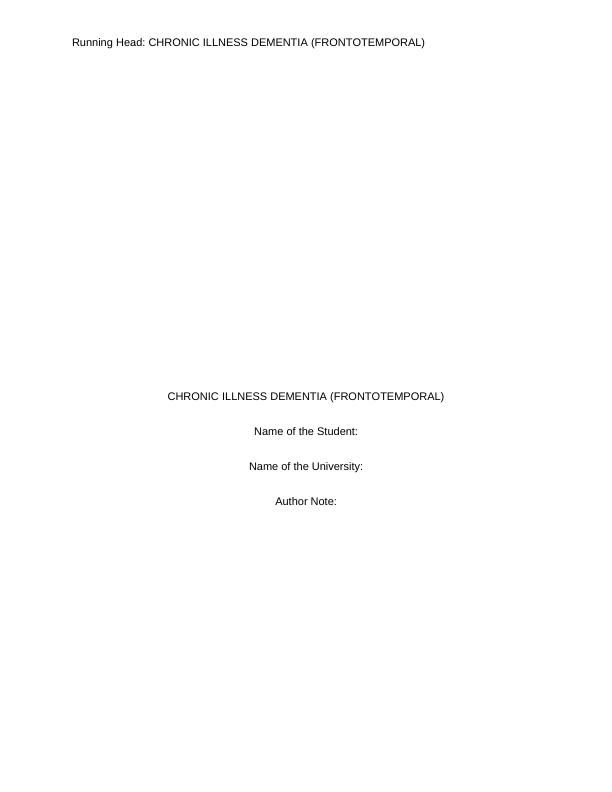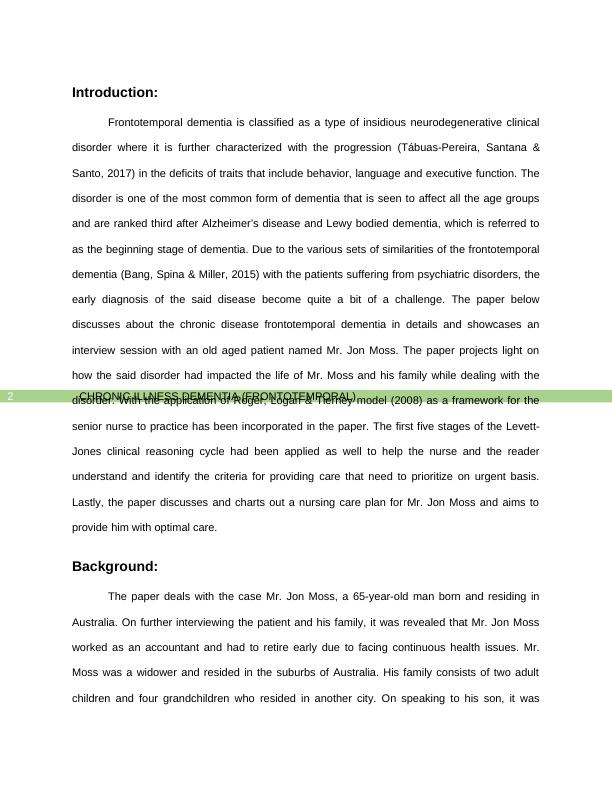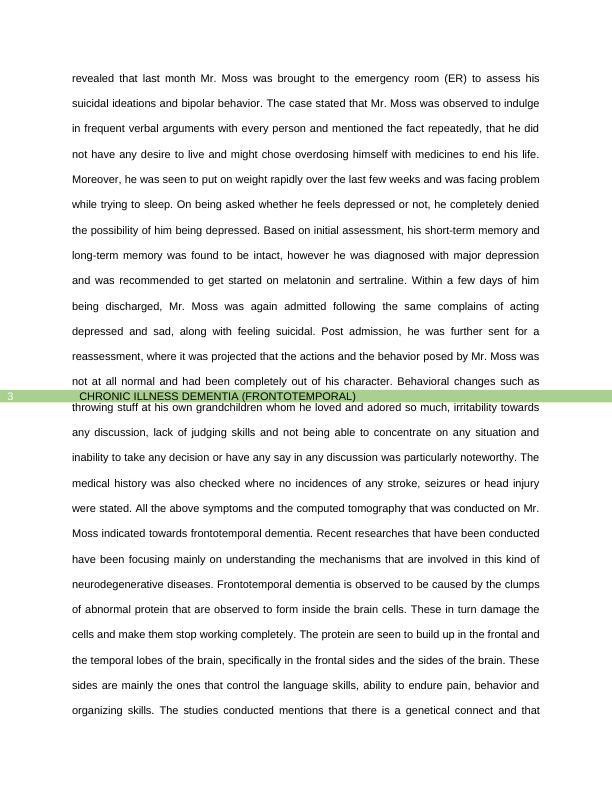CHRONIC ILLNESS DEMENTIA (FRONTOTEMPORAL)
Write an essay about Jon Moss, a 65-year-old male diagnosed with Frontotemporal Dementia and discuss its impact on his life and family.
9 Pages2653 Words21 Views
Added on 2022-08-18
CHRONIC ILLNESS DEMENTIA (FRONTOTEMPORAL)
Write an essay about Jon Moss, a 65-year-old male diagnosed with Frontotemporal Dementia and discuss its impact on his life and family.
Added on 2022-08-18
ShareRelated Documents
End of preview
Want to access all the pages? Upload your documents or become a member.
CHRONIC ILLNESS DEMENTIA - An Overview
|4
|948
|8
Nursing Care for Dementia Patient | Assignment
|18
|5108
|108
Assignment on Principle of Chronic Illness and Disability
|8
|2600
|15
Psychosocial influences on a Dementia patient
|7
|2689
|441
Home Based Care for Dementia Patients: A Case Study of Mr. Patrick
|7
|1608
|286
A Case Study of David Geoffries: Dementia, Delirium and Depression
|13
|4124
|122



